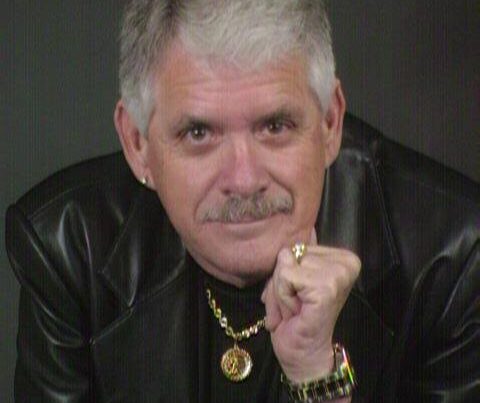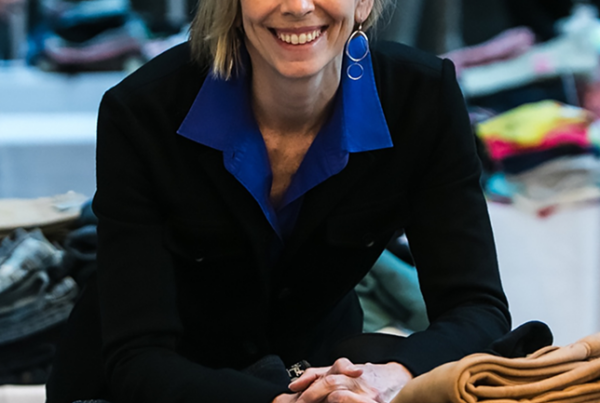Podcast: Play in new window | Download
Subscribe: RSS
How can a circular economy protect our environment and society at large?

Lilly Woodbury
Lilly Woodbury is the Regional Coordinator and official Spokesperson for Surfrider Canada and Chapter Manager for the Surfrider Pacific Rim Chapter. She concentrates on designing and implementing campaigns that eliminate single-use plastics and support a shift to a circular economy.
For five years, Lilly has been working with Surfrider Foundation to engage a diversity of stakeholders in adopting initiatives for coastal and oceanic protection and stewardship.
Lilly has an Honours Bachelor of Arts in Environmental Studies from the University of Toronto and won Starfish Canada’s Top 25 Environmentalists Under 25 in June 2018.
Lilly is has appeared on GlobalBC, CTV, CBC, and numerous other broadcast news stations to weigh in on policy-driven solutions around plastic pollution for ocean conservation.
What We Discuss with Lilly Woodbury in this Episode
- The mission of Surfrider Foundation
- The issues around ocean protection and plastic pollution
- Solutions to eradicate plastic pollution and its impact
- What is a circular economy
- Barriers to implementing environmental solutions
- The problem with incinerator plants
Transcript Highlights
Tell us about Surfrider Foundation and what it stands for.
First of all, I want to recognize that I’m speaking from the traditional unseated territory of the Tla-O-Qui-Aht First Nations on the west coast of Vancouver Island, B.C. in case anyone doesn’t know where Tofino and Ucluelet are located. It’s the Hawaii of the north and Canada’s surf capital.
I work for Surfrider Foundation and our mission is the protection and enjoyment of the ocean, beaches and waves for all people. We have five focus areas: coastal preservation, clean water, plastic pollution, ocean protection and climate change. Within that, I work for the Pacific Rim chapter which works across the peninsula.
Under that umbrella of ocean protection we focus on plastic pollution, materializing a circular economy as well as doing coastal restoration work, which feeds data and insights into our campaigns that are working to address plastic pollution and waste at the source.
We are a direct action organization and driven to win campaign victories, which is essentially a decision by governing bodies that protects the ocean and coastal environment.
How did you get involved in ocean protection and Surfrider?
I went to the University of Toronto and graduated six years ago. I hadn’t had one course on plastic pollution and hadn’t thought might about waste and ocean conversation being in land-locked Toronto.
When I came out to the west coast I started volunteering with a few different organizations but they weren’t investing in me too as an individual. Surfrider had been kind of inactive for a few years and a new executive committee had come on board and they were looking for new volunteers to address plastic pollution. We’re now one of the biggest chapters in North America.
Talk about ocean protection, plastic pollution and the issues that Surfrider Foundation is addressing.
For folks who aren’t aware of what plastic pollution is, plastics are a petroleum-based product which means they are fossil-fuel derived. They are an inorganic material that essentially is never going to bio-degrade in the natural environment.
So what we have right now is a linear economic system where we are extracting fossil fuels and manufacturing plastics, and since we don’t have a closed loop on plastic materials, called a circular economy, a vast majority of plastics – in Canada that is 89% – are ending up in landfills, getting incinerated or ending up in the environment. The oceans have become the most prominent sink for these plastics.
Once these plastics are in the oceans, they don’t bio-degrade, and pose all kinds of threats to the oceanic environment and to marine life getting entangled in debris, including fishing and aqua-culture gear. That is the most common. It also breaks down into what is called micro-plastics, which is next to impossible to clean out of the oceans. They are so small that even the building blocks of life – phytoplankton are consuming them.
Plastics unfortunately have this absorbent ability so they’re able to absorb other types of chemicals in the ocean – DDT and PCPs – and once they get into the plastics and enter into the food chain, they bio-magnify and bio-accumulate up the food chain into humans.
Beyond ocean protection in the singular sense, there is also a massive impact on climate change, as well as justice for people.
What are the solutions that we can work towards to improve upon plastic pollution and ocean protection?
There is a whole suite of solutions that need to be implemented, that involve the public and private sectors. At Surfrider, we have people that work in certain geographical areas, which have their own unique issues around eradicated waste and pollution. Our chapter has launched campaigns to eliminate single use plastics. So we’ve banned plastic bags, straws and polystyrene foam takeaway containers.
We’re also ready to ban plastic and bio-plastic cutlery as we’ve supported businesses to transition off those items. So we’ve been working to shift the culture on the ground here.
We can also talk about investing in individuals to increase their capacity as environmental leaders working with the business community to help them become compliant, holding them up as stewards of a commercial culture of stewardship. So educating visitors and residents, and then going to our government to say that we’ve worked to create this culture and compliance on the ground, and work with them to get those regulations in place.
All the insight and data we gain at the local level from winning these campaigns, our programs on waste and our clean ups far exceeds single use plastics. Single use plastics are just one piece of the puzzle. 70% of what we collect is from the fishing and aqua-culture industry. We’re able to take all that information and funnel it up to the provincial and federal level of government to recommend a broader suite of policies needed.
What is a circular economy?
A circular economy moves beyond the narrative of make, take and waste, and keeping things in a circular loop where the value of materials doesn’t depreciate. You design waste and pollution out of your systems and you keep materials in use and ideally regenerate the natural environment.
To shift to a circular economy, there are quite a few things we need to do, including scaling systems for refill and reuse, [and ultimately] design out plastic packaging. See Butterfly Diagram.
Beyond that we need to invest in systems for repair. There’s a lot of planned obsolesce in our society, where you have a phone and a year later it’s broken and you can’t fix it. Same with a whole panoply of things around your house. We need to have a repair manifesto so people know how to fix their own goods, and not have to keep buying and buying and buying.
Also refurbishment and lastly, in terms of recycling, which is where most of our narrative is focused – we’ll just improve recycling – but our recycling systems in Canada, the U.S. and around the world are really quite broken. Out of all the loops I just talked about, recycling takes the most water, energy and the most emissions, because you have to break the items down to their chemical building blocks to make new things.
Often with plastics and packaging they are only recycled one to three times before being sent to a landfill. And as we know most items are not even being recycled. So what we are proposing is to implement recycled content standards for products and packaging so that they have to have a minimum of 25 or 50% recycled plastic. That would create more of a domestic demand for that recycled plastic.
Another we’re also working on is expanding extended producer responsibility regulations. It puts responsibility back on plastic producers to be responsible financially and operationally for the full life-cycle of what they manufacture.
What are the barriers to these environmental solutions being adopted?
We don’t necessarily have a culture in North America that honors environmental stewardship and protection. If we did, it would be reflected in our government policies and educational institutions. It’s not prioritized in all structures of our society, and if it’s not prioritized, how can we expect it to trickle to the people on the ground?
Countries like Norway and Sweden have super-strong regulations where you’ll be fined if you litter and super-strong waste management. Anyone can access it. They also have strong deposit refunds for bottles which is also another great solution.
Another barrier is that big industries and corporations are super-powerful and they don’t want to see issues on this. The Canadian Plastics Industry Association has a vested interest in increasing the production of plastics and don’t want bans on plastic items. They want the emphasis to keep being on the individual, and on fixing recycling which as I’ve said is a false narrative and big myth and only part of what we need to have happen.
What steps can we take to become part of the solution?
Taking a look at your own life is a great place to start. What are some easy switches that you can make in your life? Then you can look at your workplace. Maybe they want to have a sustainability lead or committee, or you see systems changes that can be made.
You can also look at your local city or town and see what policies are there to address waste and plastic. You can join organizations like Greenpeace that seek to hold large corporations accountable.
And if people don’t have the ability to create the lifestyle changes – they don’t have clean water or enough money for food – but they have a little time to make their voice heard, they can lobby the government, businesses and corporations.
Why don’t we have more recycling plants in North America like Sweden has?
We have these energy plants but they’re seen as more of an interim solution. There’s a lot of information saying that there’s no pollutants and by-products from creating energy this way, that’s false because there is. So we ultimately need to keep these materials in a closed loop and we need to be radically shifting to clean energy for our power sources.
Incinerators pose a large problem, even those that are burning waste just to get rid of it because it’s fossil fuel. They’re also often located near marginalized communities so they are disproportionately impacted by these plants. They impact their respiratory systems, increases their risk of cancer and a whole hosts of other ailments. That really shows us the environmental racism involved in plastic across its whole life cycle.
What would you like to accomplish in your lifetime?
I guess at this point it is to make my job obsolete, ultimately eliminate my job as a campaigner, but there’s always need for campaigns and environmental action, because we’re always learning and we have a lot of work ahead of us.
I’d love to be an environmental writer. I’d love to be a CEO or Executive Director of an environmental non-profit. That could be the Surfrider Foundation one way. Right now, the B.C. chapters are all part of the United States chapters so our headquarters are in Sam Clemente, CA. But we are in the process of affiliating and standing alone, and that way we can open more chapters across Canada.
Connect With Lilly Woodbury and the Surfrider Foundation
Did You Enjoy The Podcast?
If you enjoyed this episode please let us know! 5-star reviews for the Leaders Of Transformation podcast on Apple Podcasts, Spotify, Pandora or Stitcher are greatly appreciated. This helps us reach more purpose-driven entrepreneurs seeking to make a positive impact in the world. Thank you. Together, we make a difference!










